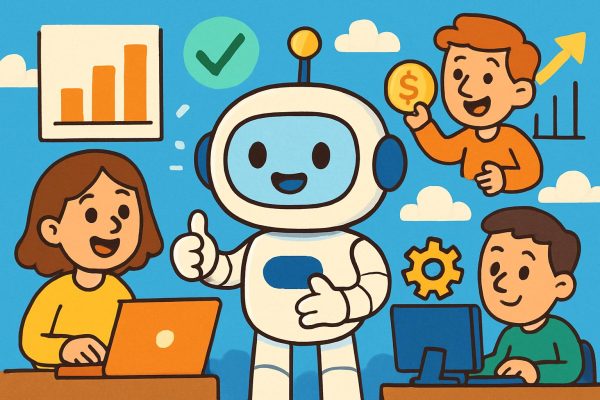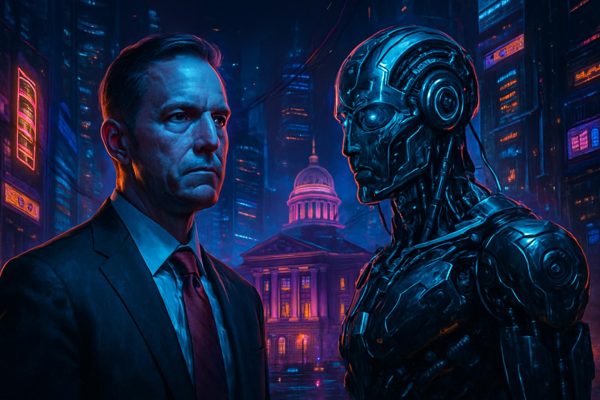It’s easy to feel dystopian about the future, and right now many people fear that AI is greasing the rails to that outcome. However, I just read an article that painted an inspiring, insightful and optimistic view of what an AI utopia could not only look like, but how we could get there. I appreciated the balanced approach, addressing real concerns, often juxtaposed to comparable situations from the past, and playing them at out in individual thought experiments. Of course, there’s much work to be done, and also some very valid concerns, however not the ones that are on most people’s minds. We’re stepping into a bold new terrain, and I’m here for it!
Vinod Khosla, an entrepreneur and founder of Khosla Ventures, explores the transformative potential of artificial intelligence (AI) in his recent article. AI, according to Khosla, is set to redefine human capabilities much like steam engines did for muscle power. Unlike previous technologies, AI multiplies human intellect, offering a near-infinite expansion of brainpower. This shift promises a future of abundance, though it may come with challenges, particularly for those whose jobs are displaced by AI.
How AI Works
AI functions by processing vast amounts of data and learning from patterns to perform tasks that typically require human intelligence. People might interact with AI through various applications, from virtual assistants to more complex systems like AI-driven healthcare diagnostics.
Benefits
- AI could democratize expertise, making high-quality education and healthcare accessible globally.
- It has the potential to optimize resource use, addressing issues like climate change and resource scarcity.
- AI could lead to a three-day workweek by taking over repetitive tasks, allowing humans to focus on more fulfilling pursuits.
Concerns
- There are fears of economic inequality, with wealth concentrating at the top as AI devalues traditional labor.
- Social manipulation and erosion of democracy through AI-driven propaganda and surveillance are potential risks.
- AI’s rapid advancement could outpace human policy-making, leading to unforeseen consequences.
Possible Business Use Cases
- Develop an AI platform offering personalized education for students worldwide, adapting to individual learning styles.
- Create a healthcare startup providing AI-driven diagnostics and treatment recommendations, accessible 24/7.
- Launch a company focused on AI-powered environmental monitoring to optimize energy use and reduce emissions.
As we stand on the brink of an AI-driven era, it’s crucial to weigh the potential benefits against the risks. While AI promises to enhance human capabilities and improve quality of life, it also poses challenges that require careful consideration and proactive policy-making. The future of AI will largely depend on the choices we make today, ensuring that its advantages are shared equitably and its risks are mitigated. As we navigate this technological frontier, the balance between innovation and ethical responsibility will shape the world we leave for future generations.
Image Credit: DALL-E
—
I consult with clients on generative AI infused branding, web design and digital marketing to help them generate leads, boost sales, increase efficiency & spark creativity. You can learn more and book a call at https://www.projectfresh.com/consulting.




